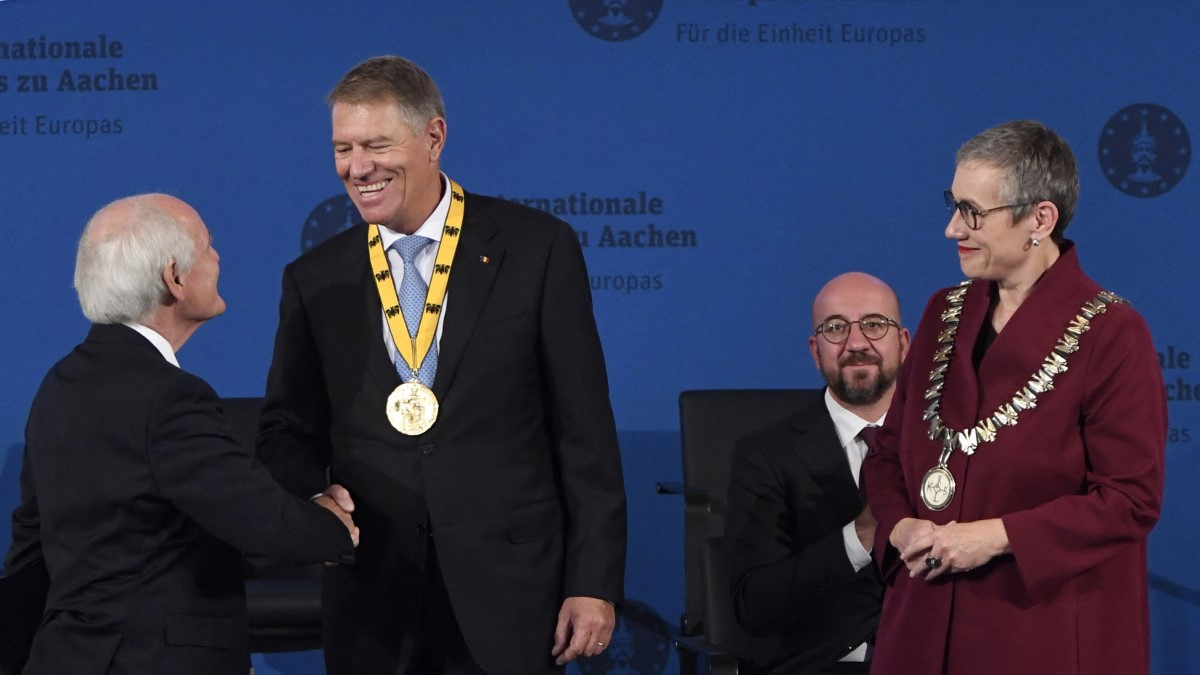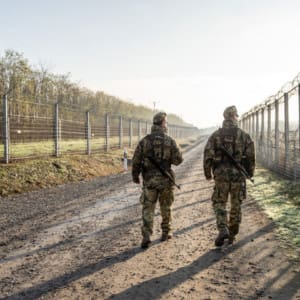Romanian President Klaus Iohannis launched a new attack against Hungary at the award ceremony of a prestigious European prize in Germany, referring to the country as “a neighbor who sometimes displays anti-European behavior and questions the Trianon borders.”
“I know exactly that this is about our neighbor, and I am even more annoyed by your statements about Trianon. I am the head of state, I come from Transylvania, we decided in a referendum, that is, we, as a people, said that we wanted to belong to Romania, we did not steal anything from anyone, it was self-determination, our right to self-determination,” Iohannis said. “Transylvania thus became part of Romania, then Transcarpathia also became part of Ukraine and so on.”
He was speaking at a round table discussion following the awarding ceremony of the Charlemagne Prize of the German city of Aachen, which he received in May 2020, but the ceremony itself was deferred due to the coronavirus pandemic.
One of the peace treaties that officially ended World War I, the Trianon Treaty divided more than two-thirds of the territory of the Kingdom of Hungary among its neighbors. This territory included the Kingdom of Romania, the Czechoslovak Republic, the Kingdom of Serbs, Croats and Slovenes, and — most ironically — the First Austrian Republic, which is considered the half of the then Austro-Hungarian Empire that was involved in igniting World War I even if it was not directly responsible for causing the war.
As a result, Hungary lost 72 percent of its territory and 64 percent of its population to the above-mentioned neighboring countries.
The Romanian president was awarded the prestigious distinction “for lasting services for the unity of Europe,” whose previous awardees include Winston Churchill, Robert Schuman, Henry Kissinger and Pope John Paul II.






